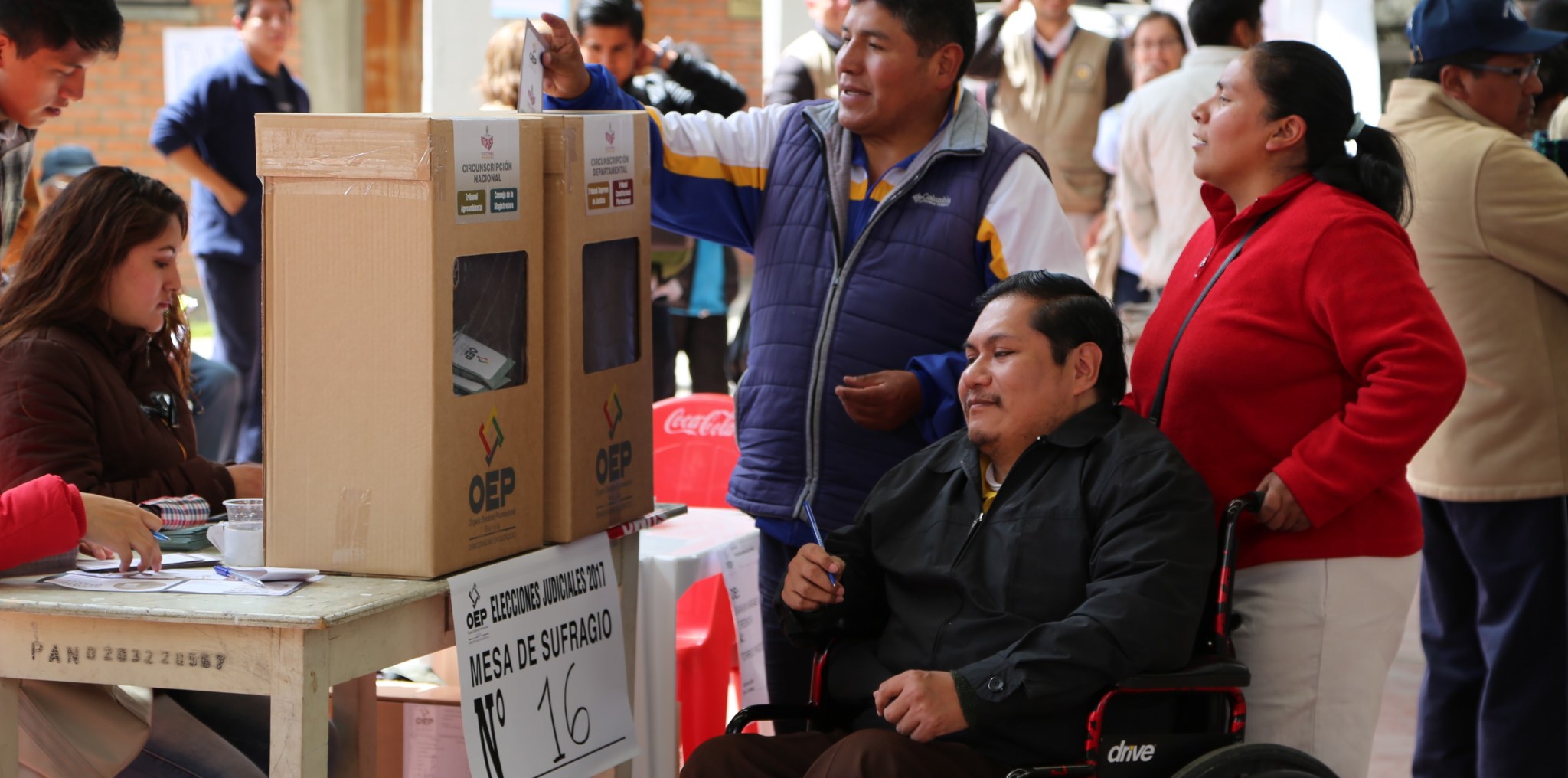Three Pivotal Presidential Elections in South America

October presidential elections in Bolivia, Argentina and Uruguay could upend not just domestic but regional politics.
This month, Bolivia, Argentina and Uruguay will hold presidential elections. On October 20, Bolivia’s longtime socialist president Evo Morales will stand for an unprecedented — and, according to many observers, illegitimate — fourth term, which polls predict could slip through his fingers. In Argentina, incumbent conservative Mauricio Macri is trailing behind the moderate leftist candidate Alberto Fernández, with the first round of voting taking place on October 27. In Uruguay, Daniel Martínez of the ruling center-left Broad Front coalition polls slightly above his nearest rival, yet not enough to win in the first round of voting, also scheduled for October 27. Each of these races could unseat its country’s ruling party, leading to profound changes in social and economic policy and reversing its approach to the crisis in Venezuela.
Bolivia
Already the longest continuously serving leader in Latin America, Morales, president since 2006, has been working to extend his rule in Bolivia. After saying he would not run for re-election in 2014, he did. In 2016, after voters narrowly defeated a referendum to allow an additional consecutive term, he obtained a Supreme Court decision stating that term limits infringed on his human rights. One of the latest polls projects his victory by roughly 6 percent, a margin much narrower than previous polling.
Leading the pack behind Morales and to his political right is Revolutionary Leftist Front candidate Carlos Mesa, a president himself from 2003 to 2005. Mesa resigned following nationwide protests calling for the nationalization of the country’s energy resources. Mesa and other opposition figures have steadily climbed in the polls and could draw enough votes away from the Morales to trigger a runoff. This could then propel Mesa to victory if the anti-Morales forces unite behind him.
Argentina
Macri, the first president since 1916 to break from Argentina’s dominant center-left populist political ideology known as Peronism, came into office in 2015 with an ambitious agenda to fight corruption and jump start a stalled economy. A number of his initiatives proved unpopular, especially his efforts to trim the country’s swollen ranks of government workers. Although he managed to reconnect Argentina to the global economy, Macri was unable to eliminate longstanding export taxes holding back the country’s industrial and agricultural sectors and take other measures to reverse financial woes.
In Argentina’s first round of voting on August 11, Macri took second place, lagging 16 points behind Alberto Fernández, who is running on a ticket with former President Cristina Fernández de Kirchner as his vice president. Although proposing an “alternative economic model” to Macri’s, it’s unclear how the opposition would steer Argentina out of its financial doldrums. Alberto Fernández has stated his intention to pay international debts and eliminate Argentina’s export taxes, but Cristina Fernández de Kirchner’s history of price controls and commercial isolation has spooked investors. No matter the winner of the presidential contest, he will have to fight for the trust of Argentines and international partners alike.
Uruguay
Across the Rio de la Plata, the ruling Broad Front coalition has been in power since 2005. The coalition has charted a center-left course, marrying liberal social policies with pragmatic trade programs that are responsible for more than a decade of economic growth and expanded employment. Recently, however, the economy has slowed, the budget deficit has grown, and a multi-year decline in the Broad Front’s popularity suggests that perhaps the coalition’s more progressive measures have gone too far.
The contest in Uruguay pits Broad Front candidate Daniel Martínez, a former mayor of Montevideo, the country’s capital, against Luis Alberto Lacalle Pou, the son of former president Luis Alberto Lacalle and a longstanding congressman with the country’s conservative bloc. After three presidential terms under the Broad Front’s rule, Lacalle Pou hopes to appeal to voters unhappy with Uruguay’s creeping deficit as well as the Broad Front’s social agenda, which in 2013 resulted in the legalization of marijuana and same-sex marriage. Should no candidate receive more than 50 percent of votes, Lacalle Pou could garner enough support to win the run-off.
Latin America’s Politics Upended?
In each case, a break with the ruling order is possible, with significant domestic and regional implications. If elections are not called off or postponed in Bolivia, a runoff between Morales and Mesa could result in an opposition victory, leading to a freer political climate, expanded free-market economic policies and a more limited executive. In Argentina, a Fernández victory would soften some of Macri’s more unpopular austerity measures while returning the country to its protectionist roots. And in Uruguay, a turn to the right under Lacalle Pou would likely favor business while reviving socially conservative policies.
On the regional stage, opposition victories may lead to changes in the countries’ policies toward Venezuela. An opposition-controlled government in Bolivia could reject the country’s alignment with the authoritarian regime of Nicolás Maduro. For Argentina, which supports the interim presidency of Juan Guaidó in Venezuela, a Fernández victory could prompt a break, giving way to support for negotiations between the opposition and the Maduro regime instead. As for Uruguay, which, along with Bolivia and Suriname, are the only South American nations that continue to recognize Maduro, a Lacalle Pou presidency may shift its foreign policy the opposite direction. Whatever comes to pass, one thing seems certain: Cambia, todo cambia.
Top